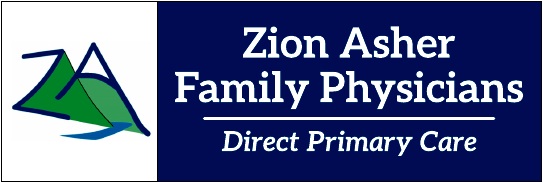"I’m Not Melting, You’re Melting" — A Summer Survival Guide for Outdoor Workers
While many people associate summer with beaches, iced coffee, and backyard barbecues, there’s a different reality for those who work outdoors. Whether you're in construction, landscaping, delivery, or any other hands-on job under the open sky, summer brings a unique set of challenges—especially when the temperatures soar.
At our clinic, we salute your grit. And we want to help you stay safe and healthy through the hottest months of the year. Below is a practical (and medically sound) guide to beating the heat without burning out—literally.
☀️ 1. Hydration Isn’t Optional
If your water bottle is still full at lunch, you’re putting yourself at risk. When you're physically active in high heat, your body loses fluids faster than you may realize—through both sweat and respiration.
Pro Tip: Check your urine color. Pale yellow (think lemonade) is ideal. Anything darker signals dehydration. Aim for frequent sips throughout the day, not just occasional gulps.
👕 2. Dress Smart to Stay Cool
It may seem counterintuitive, but long sleeves and pants made of lightweight, breathable fabrics can actually protect you better than tank tops. Choose light-colored clothing that reflects sunlight, and always wear a wide-brimmed hat or cap for sun protection.
Modern moisture-wicking fabrics can also help regulate body temperature and reduce chafing during long shifts.
🧴 3. Sunscreen Is Essential—Even If You’re Not on Vacation
If you're outdoors for more than 15 minutes, apply broad-spectrum sunscreen with at least SPF 30. Sun damage is cumulative, and daily exposure adds up fast.
Reminder: Reapply every 2 hours, especially if you're sweating heavily. Don’t forget areas like ears, the back of the neck, and the tops of your hands.
🚩 4. Know the Early Signs of Heat Exhaustion
Heat-related illnesses can develop quickly. Watch for:
Dizziness or lightheadedness
Fatigue or weakness
Headache
Nausea or vomiting
Muscle cramps
Heat stroke is a medical emergency. If someone becomes confused, stops sweating, or collapses, call 911 immediately. Don’t “tough it out.”
🌳 5. Rest in the Shade—You’ve Earned It
Schedule regular breaks, especially between 10 a.m. and 4 p.m., when the sun is at its peak. Use shaded areas or air-conditioned spaces to cool off. Rotating heavy physical tasks during these hours can also help reduce risk.
Breaks aren’t a sign of weakness—they’re a strategy for safety and longevity.
🛠️ Final Thoughts: Heat Resilience Is Smart, Not Soft
You work hard. You fix, lift, build, and move things most people take for granted. But the sun is not a challenge you can outmuscle. Take care of your body the way you take care of your tools—preventive maintenance keeps everything running smoothly.
Your health matters—to your family, your crew, and your community. Don’t push through warning signs. Stay cool, stay hydrated—and if something feels off, let us help.
At Zion Asher Family Physicians, we’re here when you need us—whether it’s:
Checking for signs of dehydration or heat-related illness
Treating sunburn or skin irritation
Helping with hydration or electrolyte management
Creating a personalized plan for working safely in the heat
Offering fast, same-day care without the wait
Dr. Lyman Wostrel knows firsthand what it’s like to work long days in the sun—he’s currently out harvesting wheat. So when we say we understand the demands of outdoor work, we mean it.
We’ve got your back. All summer long.
And because we’re a DPC clinic, you don’t need to navigate insurance just to get the care you need—just call or text us, and we’ll take it from there.
⚖️ Medical Disclaimer:
This article is for educational purposes only and does not constitute medical advice or establish a patient-provider relationship. Always consult with a licensed physician regarding your personal health.
Last Updated: June 26, 2025

